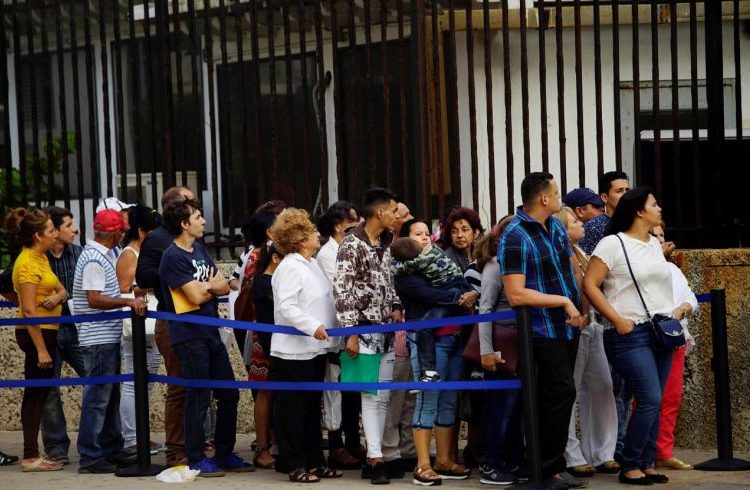Cuba and the United States held a new round of migration talks in Washington in which Cuba expressed “its most profound concern” about the impact on migration relations between the two countries by U.S. “unilateral, unfounded and politically motivated” decisions.
These new talks were headed on the U.S. side by Deputy Assistant Secretary of State for Western Hemisphere Regional Economic Policy John Creamer and Deputy Assistant Secretary of State for Consular Affairs Ed Ramotowski, while the Cuban delegation was presided over by Josefina Vidal, general director for U.S. affairs of the Ministry of Foreign Relations (MINREX).
According to a MINREX press release, the suspension of the granting of visas in the U.S. Consulate in Havana paralyzed the procedures of Cuban citizens wishing to visit or immigrate to that country, and because of this “it seriously hinders family relations and exchanges of all type between both peoples.”
The Cubans again criticized the “arbitrary expulsion of an important group of officials from the Cuban Embassy in Washington and the subsequent obstacles for the functioning of the diplomatic mission, especially the Consulate and the services it provides to Cubans resident in the United States, as well as attending to U.S. citizens who are still interested in traveling to our country,” they specified.
The Cuban authorities referred to the “counterproductive effect” the decision of cancelling the trips by U.S. delegations to Cuba is having on migration cooperation. “It has derived in the postponement of previously programmed exchanges of mutual interest, which, if maintained, could deepen the effects on exchanges on this and other spheres.”
In relation to the migration agreements in force, the United States confirmed it had met its annual commitment in the 2017 fiscal year of facilitating the legal migration through the issuing of a minimum of 20,000 visas, according to a Department of State press release.
The U.S. delegation also stated the need for greater Cuban cooperation regarding the return of Cubans with final orders of expulsion from the United States.
Still pending on the negotiation table is the Cuban Adjustment Act which continues in force and “continues being an encouragement for irregular emigration and whose repeal will be essential to achieve normal migratory relations between the two countries,” said the Cuban side.
Both delegations recognized the reduction in irregular migration with the end of the wet foot/dry foot policy and the Parole Program for Cuban medical professionals.
Moreover, they estimated the good results of the July exchange between the Cuban Border Patrol Troops and the U.S. Coast Guard Service and the technical meeting about trafficking in persons and migratory fraud held in September, which continued on December 12.
In its press release the Department of State affirmed that a solid migration policy is vital for U.S. national security and that the migration talks, which began in 1995, provide a forum for the United States and Cuba to review and coordinate their efforts in order to guarantee safe, legal and orderly migration between Cuba and the United States.
According to U.S. data, there has been a 71 percent reduction in Cuban immigrants intercepted at sea this last year, and of those detained in land borders of 64 percent, according to EFE.










